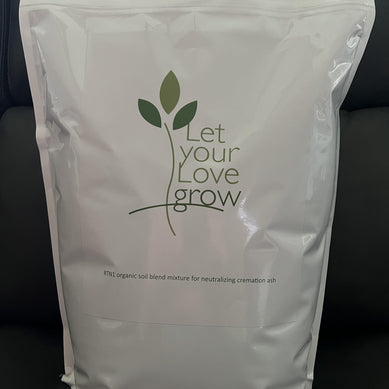Grief Care for Aging Adults: Strategies for Families and Communities
Paul Snyder has lived long enough to have seen most of his friends pass on. But even at 101 years old, Paul stays happy and active. What’s his secret?
“At 101, most of your close friends have gone by,” he says, “But you can keep making new ones.” Mr. Snyder’s attitude shows that getting older doesn’t have to mean being depressed and lonely. But it takes intentional effort to keep growing and stay positive.
Support from their families, friends, and local communities can make a significant difference in the life of an older person who is struggling with losing those they’ve known for years. Understanding the grief they face and how to help them cope and find new purpose is essential.
Here are some ideas that can help.
Understanding the Grief of Loss
The “golden years” of life can actually be quite difficult. As people get older, things change — and not always in ways that the person enjoys. The way work is conducted on computers and through online networks can be confusing, and to some older folks, it lacks personal connection.
New technologies can feel overwhelming, and people who move away or pass on can cause significant feelings of loss. At the same time, older people are losing some of the capabilities we all take for granted, like being able to walk easily, drive skillfully, and see and hear well.
All of these losses happening at the same time can cause considerable grief. As a family member or community member supporting someone older, it’s important to help promote mental wellness by encouraging them to seek professional help, spend time around others, and stay active in a safe way.
Encourage Healthy Coping Mechanisms For Grief
Becoming depressed or anxious as the result of life’s changes isn’t an automatic part of getting older. When people struggling with grief and change are able to get the help they need, they can maintain the healthy, open attitude shown by Paul Snyder and others like him.
Talking to a licensed professional can be a big help to those who are struggling. Encourage your friend or family member to connect with the right type of therapist by helping them understand the differences between psychiatrists, psychologists, and specialized licensed counselors. It may take time for them to find the right professional, so assure them it’s OK to try several and choose the one with the best connection.
Other excellent practices can boost mental health as well. For example, writing to cope with loss can lower blood pressure, improve immune responses, and allow the older person to work through their feelings in a private, safe way.
Getting regular exercise in a way that’s safe for their ability and keeping their bedroom clear of noise and clutter, along with avoiding caffeine or alcohol before bed, can help older adults sleep better even during grief. Good sleep is restorative and helps promote mental and physical healing.
Encourage Connection With Others
One of the best ways to stay positive is to stay connected with others. For older people, that can feel challenging because many of their family or friends are gone. However, as Mr. Snyder showed earlier, you can always meet new people.
Paul meets people in the course of his daily life. His recent friends include the office assistant at the dentist's office and the president of a local community organization. He even gets a pedicure every few months.
He also stays in touch with friends, new and old, through video meetings on an iPad and attends church virtually as well. As a result, he’s able to talk to both of his sons (in their 70s themselves) twice a week and stay in touch with great-grandchildren and church friends.
If you’re a friend or family member of someone older, consider teaching them to use a mobile device that allows them to see and speak to friends and relatives who don’t live nearby. This can give them a strong sense of community even if friends from their younger years aren’t around anymore.
Finding a Sense of Purpose
Sometimes older people are depressed because they don’t feel needed anymore. Their kids are grown, and their grandchildren might not live nearby. They may have lost the friends they knew for decades and wonder what life holds that still matters.
Helping older folks find a new sense of purpose can make a significant difference in their mental and emotional well-being. For example, older people make great mentors for young people and professionals in their communities. Family members can learn from their stories, and their connection to local and family history is unmatched.
It can also be helpful to connect to other older adults who are going through similar struggles but want to keep a positive attitude. Having someone who understands an older friend or relative enough to reminisce about some of the things they remember can boost their mood and help them realize that they still make a positive difference in the lives of people around them.
Aging With Gratitude Despite Grief
Getting older often means that the world is very different than it used to be, and a person’s golden years are often tinged with the grief of losing loved ones, developing health issues, and wondering how to make a difference.
Fortunately, you can encourage the older friends and family you have to stay connected with others, make new friends, and find a new purpose in each stage of their lives. In doing so, you’ll be helping to enhance their mental well-being so they can embrace gratitude and joy in life despite their losses.
We all get older. In helping your aging friends and loved ones, you’ll be preparing yourself for this important stage of life as well.
Meet the Author
Charlie Fletcher is a freelance writer from the lovely “City of Trees”- Boise, Idaho. Her love of writing pairs with her passion for social activism and search for the truth. When not writing she is a part time wedding planner and spending time with her nephews. And yes, she does love all kinds of potatoes!










